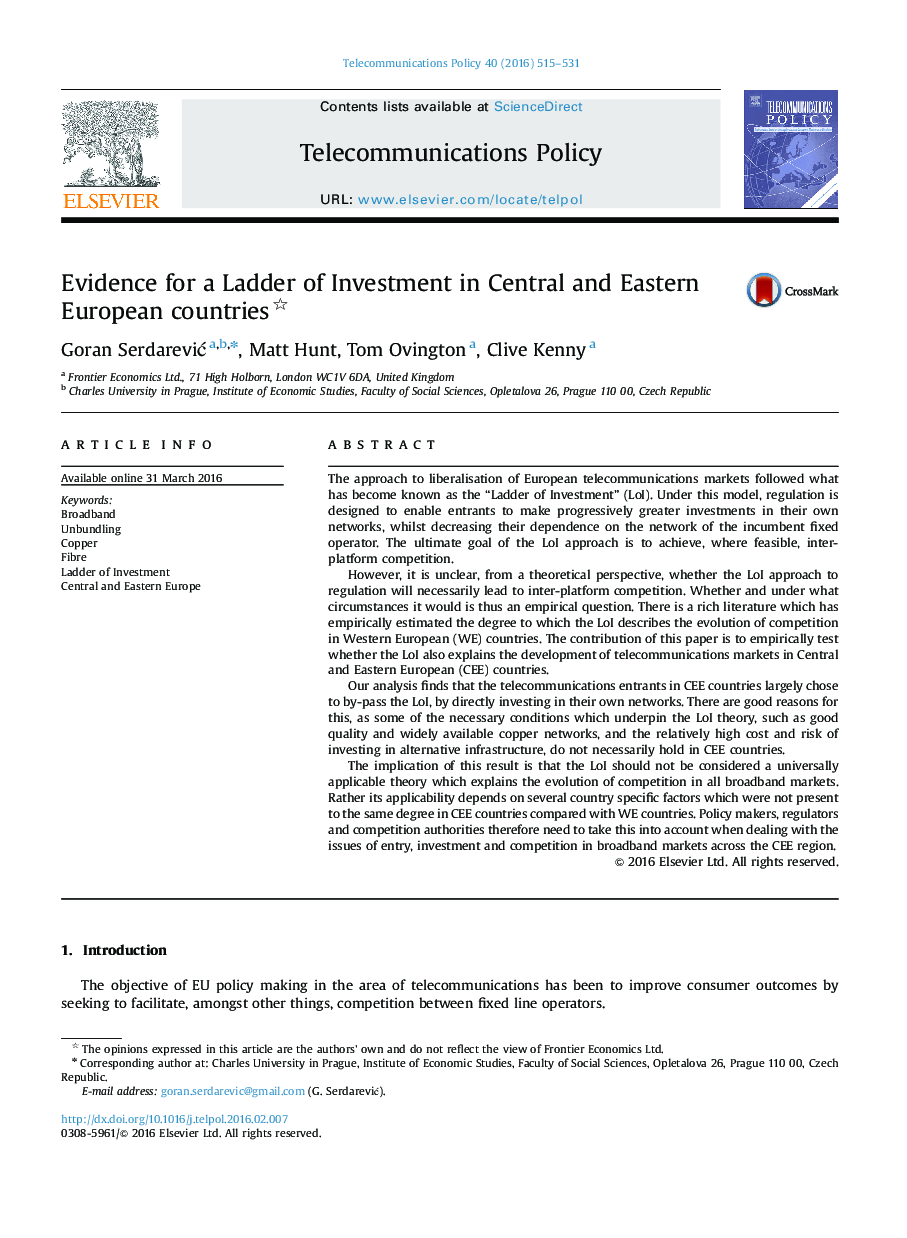| کد مقاله | کد نشریه | سال انتشار | مقاله انگلیسی | نسخه تمام متن |
|---|---|---|---|---|
| 559525 | 875083 | 2016 | 17 صفحه PDF | دانلود رایگان |
• Ladder of Investment (LoI) approach to liberalisation of European broadband markets.
• Testing the existence of LoI in Central and Eastern European (CEE) countries.
• No empirical evidence of LoI in CEE countries.
• CEE entrants chose to by-pass LoI, by directly investing in their own networks.
• LoI not a universally applicable theory for the evolution of broadband competition.
The approach to liberalisation of European telecommunications markets followed what has become known as the “Ladder of Investment” (LoI). Under this model, regulation is designed to enable entrants to make progressively greater investments in their own networks, whilst decreasing their dependence on the network of the incumbent fixed operator. The ultimate goal of the LoI approach is to achieve, where feasible, inter-platform competition.However, it is unclear, from a theoretical perspective, whether the LoI approach to regulation will necessarily lead to inter-platform competition. Whether and under what circumstances it would is thus an empirical question. There is a rich literature which has empirically estimated the degree to which the LoI describes the evolution of competition in Western European (WE) countries. The contribution of this paper is to empirically test whether the LoI also explains the development of telecommunications markets in Central and Eastern European (CEE) countries.Our analysis finds that the telecommunications entrants in CEE countries largely chose to by-pass the LoI, by directly investing in their own networks. There are good reasons for this, as some of the necessary conditions which underpin the LoI theory, such as good quality and widely available copper networks, and the relatively high cost and risk of investing in alternative infrastructure, do not necessarily hold in CEE countries.The implication of this result is that the LoI should not be considered a universally applicable theory which explains the evolution of competition in all broadband markets. Rather its applicability depends on several country specific factors which were not present to the same degree in CEE countries compared with WE countries. Policy makers, regulators and competition authorities therefore need to take this into account when dealing with the issues of entry, investment and competition in broadband markets across the CEE region.
Journal: Telecommunications Policy - Volume 40, Issue 6, June 2016, Pages 515–531
